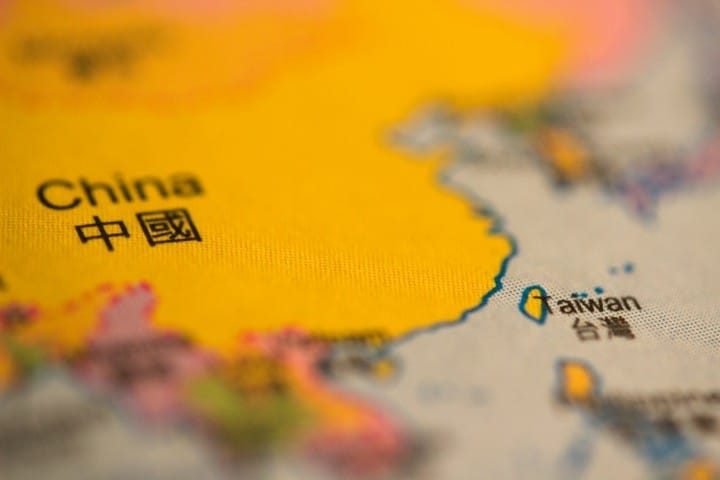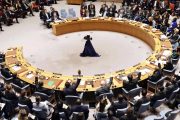
SINGAPORE — European powers must not display weakness to President Xi Jinping of China and should “spell out the severe economic consequences” of invading Taiwan, Anders Fogh Rasmussen, former NATO secretary-general, said in a speech in Taiwan this week.
“We have built a Europe based on security provided by the United States, cheap goods from China and cheap gas from Russia,” said Rasmussen, who led NATO from 2009 to 2014. “That model doesn’t work any longer. We should not repeat this mistake by being too weak, too accommodating when it comes to China.”
He claimed world powers must unite to make Beijing “think twice” about an invasion of the self-ruled island, which Xi has vowed to reunite with China by force if necessary:
I think we should react determinedly if China were to attack Taiwan, and we should replace strategic ambiguity with strategic clarity. We should realize that the conflict between China and Taiwan has, and will have, global repercussions. So we have a global interest in preventing those tensions from escalating into an armed conflict.
China, which claims Taiwan as its own, has been increasing pressure on Taiwan to assert its sovereignty claims, including almost-daily Chinese air force incursions near the island over the past three years.
Mao Ning, a spokeswoman for the Chinese foreign ministry, remarked: “The Taiwan issue is not about democracy, but about China’s territorial integrity and motherland unification…. Any plot to create two Chinas, or one China, one Taiwan, in the world is doomed to fail.”
Rasmussen admitted that although unified sanctions by democracies worldwide would definitely lead to a global economic collapse, Beijing would be the most affected.
“China is far more reliant on global supply chains…. Spelling out the severe economic consequences of any attack now would be a powerful deterrent,” he said. Furthermore, Rasmussen said European countries could combine training exercises with Taiwan’s military forces, which presently rely on weapons mostly made domestically and by the U.S.
Noting that he believes Xi is paying close attention to the outcome of the Ukraine war, he said that ensuring that Kyiv wins Putin’s armed forces in Ukraine would be another way to deter Beijing from invading Taiwan. Claiming that the West had been “naïve about President Putin’s intentions prior to Russian action in Ukraine, he compared russia’s actions to China’s military aggression toward Taiwan and said that democratic countries must gather together to ensure a Ukraine victory to discourage the Chinese from acting.
“All those who believe in a democratic Taiwan and a rules-based international order must work to ensure Ukraine prevails,” he said, based on reports from Taiwan’s official Central News Agency. “It is for the people of Ukraine and the people of Taiwan to decide their future, and the free world must give them our support.”
In an essay published in 2021, Taiwan’s President Tsai pledged to protect Taiwan’s democracy against an increasingly bellicose China, cautioning of “catastrophic consequences” for the region should Taiwan be invaded.
Tsai’s essay came amid massive incursions by Chinese warplanes into its air defense zone. Moreover, Taiwan’s premier, Su Tseng-chang, said the “over the top” activity violated regional peace, and Taiwan had to remain vigilant.
Writing for Foreign Affairs magazine, Tsai highlighted Taiwan’s desire for peace but warned that “if its democracy and way of life are threatened, Taiwan will do whatever it takes to defend itself.”
Tsai encouraged other nations to “understand the value of working with Taiwan,” against the wider menace posed by Beijing. “And they should remember that if Taiwan were to fall, the consequences would be catastrophic for regional peace and the democratic alliance system.”
“Amid almost daily intrusions by the People’s Liberation Army, our position on cross-strait relations remains constant: Taiwan will not bend to pressure, but nor will it turn adventurous, even when it accumulates support from the international community,” she said.
Few countries formally recognize Taiwan, a situation which Tsai said had compelled the nation to think asymmetrically and set up unofficial partnerships and agreements. The island also plays a role in international bodies as a non-state party.
With better relations with many countries around the world, Taiwan is an increasingly crucial democracy, trading partner, and global supplier, as well as a vital segment of an island chain which stretches from northern Japan to Borneo, Tsai said.
“Should this line be broken by force, the consequences would disrupt international trade and destabilize the entire western Pacific,” she said. “In other words,a failure to defend Taiwan would not only be catastrophic for the Taiwanese; it would overturn a security architecture that has allowed for peace and extraordinary economic development in the region for seven decades.”
In light of Chinese threats, Taiwan has pledged to step up investment in its defense capabilities, including buying arms from the United States.
“Such initiatives are meant to maximize Taiwan’s self-reliance and preparedness and to signal that we are willing to bear our share of the burden and don’t take our security partners’ support for granted,” Tsai said, adding that Taiwan is “fully committed to collaborating with our neighbors to prevent armed conflict in the East China and South China Seas, as well as in the Taiwan Strait.”



